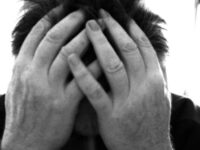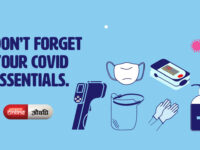Medicines are the key to promoting and restoring our health when our health deteriorates in any manner. Due to this we have to store many medications both prescription and over the counter in our home. But if these medicines are stored in an in appropriate manner it can cause unexpected consequences. So here are some tips to safely store and use these medicines at home.
Medicine Storage
1.Store in a cool, dry place – While it varies by manufacturer, this rule stands true for most medications. A few simple storage locations might be in a medicine cabinet, on top of a dresser or on a designated shelf. If you have children, be sure to keep medications up high and out of reach. Warm and humid conditions, such as in the bathroom drawers, often speed up the breaking down of the medication. On rare occasion, improperly stored medications can become toxic.
2. Keep away from light – Light can degrade medication more quickly than intended, so it’s important you don’t store medication in light-filled places such as a windowsill or under powerful indoor lighting.
3. Check the expiration date – Whether it’s an over-the-counter or prescription medication, old pills degrade over time and can cause a bacteria imbalance when consumed. Most medication expires after one year, so use this as a rule of thumb when revisiting old pills and check the expiry date on the medicine before consuming any stored medicines. Never use a medication that has changed color, texture, or odor, even if it has not expired. Throw away capsules or tablets that stick together, are harder or softer than normal, or are cracked or chipped.
4. Do not Transfer the content of your medicine – Always keep medicines in their original container. Transferring specially liquid medicines in other container can infect the medicine in the process. Also, don’t leave the cotton plug in a medicine bottle. This can draw moisture into the container.
5. Do not flush – When disposing of expired, discolored, or unused prescription medications, be mindful of proper disposal practices by throwing medications away in the household trash or through your community’s medication disposal program. One of the easiest options is to take your unused or expired medications to your pharmacy and they will dispose of them properly. Flushing or pouring medication down the drain harms the environment, as sewage systems are not capable of removing medicines from the water released into lakes, rivers and oceans.
Medicine Use
1. Note the warning label – Even if you’ve taken the medication for years, it’s always a good idea to look at the warning label for consumption directions, as your doctor may have altered your dosage or the manufacturer slightly changed the consumption directions.
2. Consuming liquids is not the same as consuming water – If the label instructs you to consume with water, be careful not to consume with other beverages. Juices and acidic drinks can cause the medication to break down faster than normal and hot drinks, such as coffee or tea, cause coated pills to melt too quickly in the stomach – not the intestine, where it’s intended to break down. This may produce side effects as harmful as stomach ulcers.
3. Don’t lose the dropper – It might seem the same to use a household spoon with liquid medication, but the dropper or spoon provided by the pharmacy has been measured specifically for your intended dosage. Research shows that silverware teaspoons can vary between one to nine milliliters dependent upon design, making them an unreliable tool for medication.
4. Children are not small adults – If a medication is intended for adult consumption only, keep in mind that it cannot simply be given to children in smaller doses. Instead, seek a medication specifically designed for children.
5. Medicine is not candy – Although referring to medicine as “candy” around children might be a tempting tactic to entice them to take it, parents should be wary of what might happen when they are not around. Children can easily get a hold of medication, consume large amounts and overdose.
6. Your pharmacist is your friend – Don’t forget that your pharmacist is an expert. When in doubt about the safety of consuming a medication for any given reason, your pharmacist is there to answer your questions.
Sources:
http://obrienpharmacy.com/2013/10/
http://takeasprescribed.org/storage-safe/
http://yourhub.denverpost.com/blog/2013/10/














